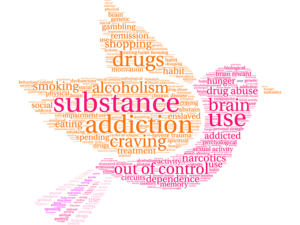by Fred Meyer, MA, CJM, CCHP
While visiting dozens of jails over the past few years, it is consistently clear to me that medical, mental health, and custody professionals are working hard to provide a safe and healthy environment inside the walls. People in custody often arrive in some form of medical, mental health, and/or substance-related crisis. In fact, it’s common for health and custody staff to describe intake and booking areas as operating like hospital emergency rooms. One of the main challenges and risks at intake is the identification, evaluation, and treatment of individuals with substance use disorders (SUD).
According to the Bureau of Justice Assistance (2022), over 60% of individuals sentenced in our county jails have an SUD, while that rate is only 5% in the community., These people may start to withdraw from alcohol and drugs within a few hours of arrest. Jails have the responsibility to ensure treatment is provided and deaths are avoided whenever possible. In my experience, the health professionals working in our jails are motivated to do just that.
But no operation is perfect; there are always improvements that can be made. Here are a few suggestions to help you evaluate your processes, mitigate your risk, and move forward proactively.
- The receiving screening document, process, and patient interviews should be reviewed and audited to ensure practical compliance with policy and NCCHC standards. Observation is more effective than reviewing records alone. The key is catching issues on the front end of the process, so treatment plans can be implemented and crises avoided.
- Those placed on detoxification protocols may be best monitored if housed in a centralized location. While this is not always possible, it does make it easier to treat patients and prevent anyone from falling through the cracks. CIWA and COWS processes should be audited by both observation and record reviews to ensure effective health services are provided.
- Dehydration due to vomiting, diarrhea, and excessive sweating is often associated with adverse events. We have found measurable success in agencies that provide supplemental, palatable fluids and electrolytes (e.g., Gatorade® or other sports drink) to those on detoxification protocol. Improved vital signs and a reduction in referrals have been observed. Initial cost concerns were satisfied due to health improvements and reductions in hospital referrals.
- Several jails train health and custody staff in the use of naloxone, and in many, facility staff also keep it on their person to save lives. A key to success is providing interdisciplinary training where uniformed custody staff and health staff create live or video training together to gain buy-in at all levels. The cost is minimal compared to the positive impact.
- Implementation of long-term MOUD/MAUD programs are becoming far more common in large and medium-sized jails. We have worked with several agencies that have reported success with minimizing diversion of medication and improved population behavior while treating those with SUD in a jail environment.
- From a legal perspective, it’s important that agencies are proactive in the management of detoxification and treatment of substance use disorders so they don’t run afoul of the Americans with Disabilities Act (ADA) of 1990 and Civil Rights of Institutionalized Persons Act (CRIPA) of 1980.
This article describes just a few of the many challenges associated with managing SUD. It is my hope that you take one or two of these suggestions and make positive changes by applying them in your facility.
Thank you for everything you do. Stay safe and healthy!
Fred Meyer is managing director of NCCHC Resources, Inc. Contact him at [email protected].
References
Americans with disabilities act of 1990, as amended. ADA.gov. (n.d.). https://www.ada.gov/law-and-regs/ada/
Civil Rights of Institutionalized Persons. Civil Rights Division. (2023, June 6). https://www.justice.gov/crt/civil-rights-institutionalized-persons
Managing substance withdrawal in jails: A legal brief. (n.d.). https://bja.ojp.gov/doc/managing-substance-withdrawal-in-jails.pdf

